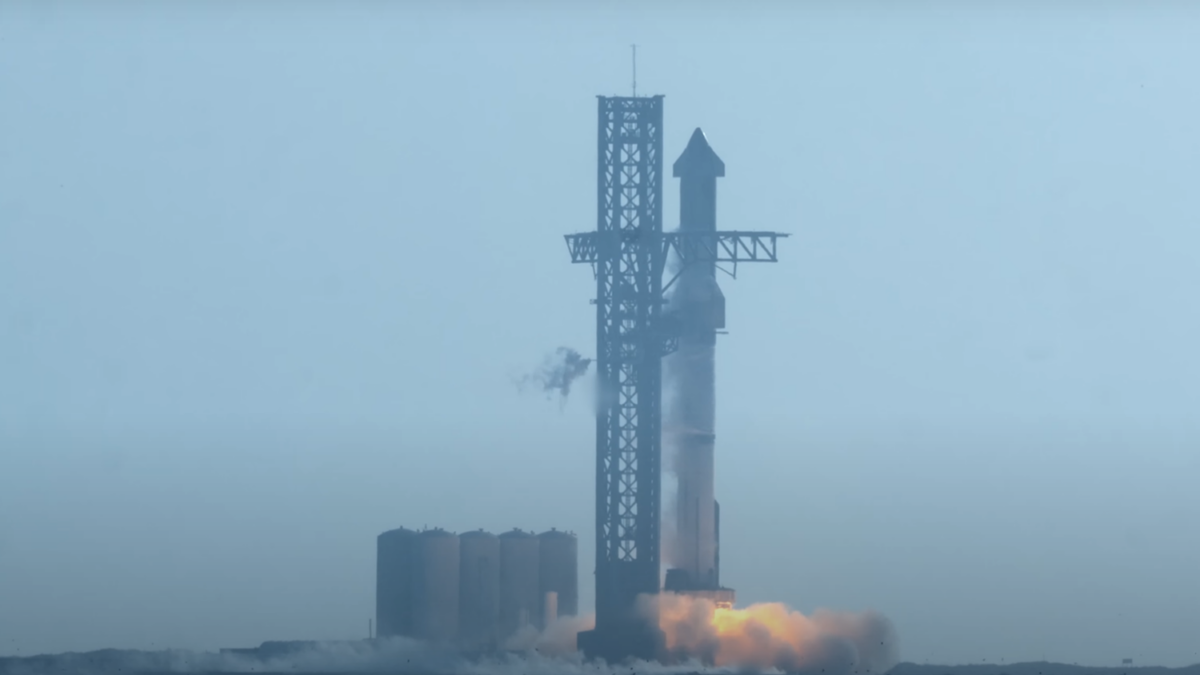
This week marks the 28th anniversary of the Space Shuttle Challenger explosion. It also marks the 47th anniversary of the fatal Apollo 1 launchpad fire. With the moon landings in the distant past and the Mars Rover and Hubble telescope unmanned, our strongest memories about the manned U.S. space program are about the disasters and loss of life. Overreaction to this loss of life has led to safety becoming more important than any other goal, argues Rand Simberg in the powerful new book “Safe Is Not An Option.” That’s a problem that is crushing our space exploration efforts.
Risk aversion is a pervasive problem. I wrote a few months ago about how some of my neighbors thought that kids starting a lawn-mowing business was too risky. They might get hurt. They might not wear protective eye-wear. They might inhale dangerous pesticides. I responded that there was certainly some risk but that they’d also learn how to interact with people of different ages, handle money, and become responsible.
Tristyn Bloom has discussed how young women turn to abortion because they are risk-averse:
We often hear that a problem with young people today is that we are irresponsible. We don’t have a sense of duty. We don’t have a sense of order. We’re immature. I think that the problem is actually the opposite. I think that we are pathologically terrified of risk and I think that we have this enslavement to our own ideas of respectability, our own ideas of our life plan, our commitments, our existing duties such that something as radically changing as a new life doesn’t fit in with those existing duties.
Our entitlement programs, regulatory regime and the growth of the state in general are all really about risk aversion. We’re willing to squash liberty and remake massive sectors of the economy if the goal involves decreasing some risk for some portion of the population. The American populace seems to desire safety and security over exploration and entrepreneurship. We don’t mind if a new drug that would save thousands of people each year is delayed from entering the market for a dozen years so long as no drug enters the market with “too many” risks.
Frontiers Are Always Risky
And so Simberg begins his book, which is surprisingly readable and engaging for being mostly policy wonkish, about the risks of exploration. We have forgotten that no frontier has been opened without tremendous loss of life.
Ferdinand Magellan’s attempt to circumnavigate the globe began with a crew of 270 on five ships. Only one ship and 18 crew members made it. Over 85 percent died in battles, mutiny, sickness and various other calamities. Magellan himself didn’t make it!
Scientists attempting to advance human understanding of biomedicine, radiation and electricity died from their tests.
The first English settlement in what became the United States — Roanoke Island — was a complete failure. More than half the members of the second — the Jamestown Colony — died within eight months of launching. Many Irish citizens fleeing The Hunger didn’t even survive the voyage West.
The same can be said for efforts at improving transport. Whether it was the steam engine or the beginning of air travel, significant advances brought terrible tragedies and loss of life.
I’m not dismissing the sadness of it all. The father of one of my brother’s best friends died testing the Stealth fighter. He left behind a beautiful wife and four children who grieve his death daily. A civilized society is one that cares deeply about the loss of life and views every death as a tragedy. But a society that doesn’t let kids mow lawns until they’re 18 and wearing steel-tipped shoes and protective polycarbonate eyewear is one that has completely messed up the risk-reward calculation.
An Obsessive Focus On Avoiding Failure Only Leads To Failure
Even 150 years ago, Americans lived very different and riskier lives. They traveled places where water, food, shelter and safety were uncertain. Where the risk of sickness and death was high.
Today, we couldn’t be more coddled. We fly across the country for hardly any money. We never worry about being someplace far from food. We are healthier than we’ve ever been. We live longer than ever. Despite our increased security and stability — things people ostensibly value — women, at least, have also experienced declining happiness. We’re wealthier and healthier — materially, if not spiritually — than we ever have been and yet people aren’t exploding with happiness. That’s a very complicated question with many answers.
But perhaps a small part of it is that regulations and massive risk-averse government programs enable security at the expense of things that are also valuable to humans and our happiness, such as exploration of new frontiers.
It used to be that space exploration was NASA’s primary objective. Now it’s “getting everyone back safely.” When that’s your objective, it makes you extremely risk averse. If you’re scared of falling down a snowy mountain, you might not snowboard so much. You certainly won’t snowboard aggressively and you won’t push yourself to try new moves. And you’ll also probably fall just as much if not more than if you’d had the objective of becoming a great snowboarder.
In fact, Simberg catalogs — in detailed but readable fashion — the results of this fear-based policy: less manned space exploration, less manned space activity and, it turns out, less safety for the crew.
Limiting the space program in terms of transports, astronauts and actual flights leads to unfamiliarity with basic procedures. Filling up space transports with safety equipment that almost certainly will never be used reduces vehicle performance and mission capability. And the focus on covering your behind takes time that might be better spent discovering problems. It’s the classic bureaucratic culture in which risk is to be avoided at all costs and taking risks is frowned upon. (Not that it’s limited to government bureaucracies. Pixar president Ed Catmull has said, “We all know the saying it’s better to ask for forgiveness than permission. And everyone knows that, but I Think there is a corollary: if everyone is trying to prevent error, it screws things up. It’s better to fix problems than to prevent them. And the natural tendency for managers is to try and prevent error and over plan things.”)
Opening up new frontiers is hazardous, yes. But our expectations for safety have gotten absolutely ridiculous. “In an age in which people have developed an unrealistic expectation of absolute safety in all activities (and expect government to provide it), we are also attempting to open up space, the harshest and most challenging of frontiers. The conundrum is that these two goals are mutually exclusive, at least at current technology levels (and perhaps at any),” writes Simberg.
Part of the problem is the constraints of government processes — the powerful lobbyists who make sure their companies are fed the appropriate pork, the various political calculations of people dying for their country, and the lack of reward for success.
“Much of the mewling about “safety” by Congress is actually a rationale to continue to prop up the old ways of doing business that have kept us from making much progress in space,” Simberg writes, noting that such a system is threatened by competition.
How Do We Shed Our Irrational Aversion To Risk?
The country’s official policy regarding space is to prepare to settle it. But you wouldn’t necessarily know that. NASA’s culture, the rhetoric of political leaders, and the lack of media coverage all obscure that official policy. Simberg argues that Congress and the president should forthrightly declare frontier opening a national priority. Then the country can move to a better understanding of what we’re willing to spend — in terms of money and human lives — to achieve our goals as well as the variety of ways the goals can be accomplished.
Multiple competing commercial space transportation providers are necessary to improve serves and drive down costs and prices, Simberg notes, just as is seen in every other mode of transportation in a free market. A vibrant commercial spaceflight marketplace can compete not just on cost but on passenger safety and trip reliability as well, enabling customers to pick the level of risk they’re comfortable with. FAA regulations can help this by being flexible instead of strangling the fledgling industry, Simberg writes. He suggests:
- Extending moratoriums on regulating passenger safety.
- Extending the traditional recognition of maritime classification societies to similar ones for spaceflight and spaceports.
- Eliminating funding for the Space Launch System.
- Devoting more resources to purchasing crew transportation from the private sector for any of the government’s human spaceflight needs.
As for government manned spaceflight, Simberg urges cultural changes including more precise terminology related to risk. He suggests that NASA consider returning to an R&D function consistent with its original charter, otherwise getting out of the launch business entirely.
Goals Worth Dying For
We routinely accept that military campaigns will sadly involve loss of American life. Isn’t it somewhat bizarre to think that astronauts are not also willing to put their lives on the line in their country’s interest? The fact is that being an astronaut is safer than being a test pilot. But it’s also safer than being a Navy or Marine aviator, Simberg writes.
Part of the reason why the American public was so upset by the loss of the Columbia crew in 2003 is because they were perceived to have died for something trivial — the trip was mostly known for performing children’s science fair experiments. A private or public exploration and settlement program based on larger ideals — national security, advancing the human condition, fleeing from religious persecution, or even just to test the limits of human accomplishment — would change the risk calculus.
And it would change that calculus for the better. It would be wonderful if nobody died in our efforts to explore space. But building a program around that goal is no way to accomplish anything of note.









